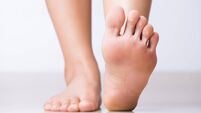On the dry for January: The health benefits of giving up alcohol for a month

We may like alcohol, but alcohol does not like us.
There's a great TikTok of a guy trying to explain alcohol to a Martian. The bemused Martian learns that humans pay money to pour a toxic liquid into themselves that can disinhibit them to the point of doing stupid things, leave them feeling physically and emotionally terrible the next day, and damage their health in the long term. And that humans do this for fun.











